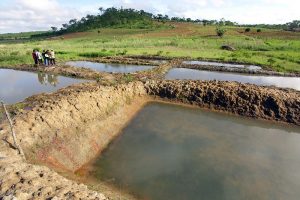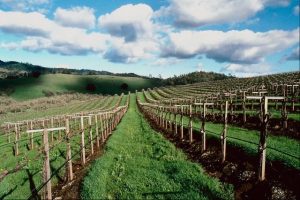Being a major economic activity in Africa, agriculture has created many job opportunities and improved people’s living standards. Agriculture contributes an average of 30%-60% of gross domestic product and around 30% of the value of exports for each country. Access to loans is essential to farmers as it helps them start up and run their farms more efficiently. Farmers can obtain loans from traditional lenders and government agencies.
Uses of Farm Loans
Farmers apply for agricultural loans to help them accomplish their farming goals. The following are ways you can use your farm loan.
- Purchasing farmland. Beginner farmers can apply for agricultural loans to buy land for farming activities. On the other hand, established farmers can apply for a loan to expand their current farming spaces. The type of land you need will depend on the type of farming you plan to do.
- Marketing farm produce. Agricultural loans are also important in helping to market agricultural products. Upon harvesting, farmers need to sell their produce. If people are to know about what you are selling, you will need to employ an effective marketing strategy to get the word around about what you are selling. You will need money to cater to marketing costs.
- Cover operating costs. Apart from buying agricultural land and marketing your farm products, you will need capital to finance your operations. You will need to pay employees and cover bills.
- Buying farming equipment. Farmers will need farming equipment such as tractors, harvesters, and tractor attachments (fertilizer spreaders, seeders, balers). Additionally, you will need to buy seeds, fertilizers, pesticides, etc.
- Investing in growth. Like every other entrepreneur, a farmer’s major goal is growth. You can apply for a farm loan to expand your activities by buying more land, larger facilities, and more equipment.
- Making land improvements and repairs. Farms need constant maintenance for quality produce. As such, farm loans can be used to make upgrades or repairs to land or infrastructure. Farm repairs are usually expensive, but the result is highly rewarding.
Tips on How to Obtain a Farm Loan
Different lending institutions have different requirements and qualifications for obtaining farm loans. It is best to check for loan requirements and see if you qualify before applying. The following will determine your success or failure to obtain a farm loan.
Credit History
Lenders will first look at your credit history when you approach them for a loan. These institutions will need to assess your financial ability to see if you can repay the loan. They usually do this by reviewing your farm balance sheet, business history, and cash flow statement.
It is not easy to get approved for a loan if you have a poor credit history. However, it is not entirely impossible. Some companies lend to people with poor credit, but at higher interest rates. Additionally, government agencies are also less restrictive about the credit scores they allow from loan applicants.
Business Plan
Business plans are important for the success of any business. This said, they are crucial when it comes to borrowing from financial institutions. Your business plan will include the amount of capital you require, how you intend to start and run the business, both short and long term goals. These are some of the things that financial institutions look at before deciding to give you a loan. A well planned out business plan will show your commitment and ability to repay the loan.
Business Safety
Every lender will want to know how safe/risky the farm business is. No one wants to invest in something likely to fail. In the case of a risky farm business, there are several possible outcomes; your loan application will either be approved at a higher interest rate, or it might fail getting approved.
Personal Presentation
How you prepare to apply for a farm loan should be similar to how you prepare for a job interview. The general impression you make on the lender will determine whether you get approved for the farm loan or not. Your qualifications, business plan preparation, management skills, and personal credit are enough to convince the lender if you qualify for the loan.
Collateral
Traditional lenders have set high standards when it comes to approving loan applications. This includes checking the valuable assets you own to see if they are worth your loan’s value. In case you cannot repay the loan, the lender can use these assets to recover his money.
Final Thoughts
Starting up and running a successful farm as a business is quite expensive, and farmers always need financial help to take their farming to the next level. Borrowing a loan farm is one thing, and putting the loan farm into good use is another entirely different thing. It is best to develop clear plans on how to use the loan and how you plan to repay it. Use your farm loan wisely, and you’ll be sure to transform your agricultural experience.


![Starting a Lucrative Hemp Farming Business in Zambia [Interview]](https://businessideas4africa.com/wp-content/uploads/2020/10/pgc9vid8o24-scaled-300x200.jpg)









